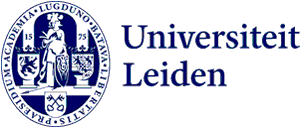
‘I can feel the pain on both sides of the border’
How can the Netherlands help secure a peaceful future for Israel and Palestine? At a recent meeting at the university, two remarkable speakers shared their perspectives: Somaya Bashir, a Palestinian woman living in Israel, and Palestinian journalist, Houssam Khadra, who fled Gaza over a decade ago.
‘I’m calling from the heart of the storm,’ said Somaya Bashir (50) from her home in Israel. Due to the war, she was unable to leave Israel and could only participate online in the 17 June event, held at Leiden Law School’s Cleveringa Hall. Although attendance was not high, her message was no less powerful.
She seeks to amplify the voice of the Palestinian Muslim minority living in Israel. Her own family is divided – some live in Israel, others on the West Bank. She described the unspeakable suffering in the Palestinian territories, where civilians face daily bombardments.
At the same time, she expressed deep concern for Israel’s future, ‘I’m worried about the rise of extremist forces. Democracy is under threat here. I’m speaking for the many Israelis who do not want to fight this conflict with weapons.’
Bashir advocates for a two-state solution and supports organisations that foster cooperation between Arabs and Jews in Israel, such as the group We Have No Other Country, of which she is a co-founder.
Role of universities
Across European universities, including here in Leiden and The Hague, there is ongoing debate and protest about how to engage with Israeli academic institutions. ‘What should Dutch universities do?’ asked the moderator, Mark Rutgers.
Bashir explained how her daughters study at an Israeli university. ‘Universities can give us the strength to speak out. So don’t sever all the ties, but strengthen the ones with those who seek peace.’
Bridge to peace
She sees a vital role for Palestinians and Arab Israelis like herself. ‘We can be a bridge to reconciliation. From where I stand, I call on you to strengthen ties with the civic leaders, both Israeli and Palestinian, who are working towards a peaceful, shared future. Help us.’ Visibly moved, she added, ‘I feel the pain of mothers on both sides of the border who have lost loved ones to violence.’
Journalist from Gaza
Palestinian journalist Houssan Khadra (27), who was present in person, also opposed the idea of cutting ties with Israeli universities. ‘That’s a boycott for show, and it ends up boycotting education.’
Khadra spent most of his life in Gaza, where he became a journalist and saw how Hamas seized power through violence. He deplores how Gaza has not held elections since 2006. As the situation worsened, he fled to Egypt and now lives in Greece. He fears for the fate of his family in Gaza and future generations of Palestinians. ‘The war has meant that children in Gaza have not gone to school for years. How can they grow up to become doctors or teachers?’
Safe zones
Former rector Douwe Breimer, who was in the audience, asked about what stance Israeli universities take. LUMC researcher Vered Raz, who comes from Israel, said that she has been in contact with several Israeli universities on this very issue. ‘Their response is that they oppose the government. They say: help us support the Palestinians. After all, many Palestinian students study in Israel. The question is how we in the Netherlands can help create safe zones for this group.’
Demonstrations
Another academic from Leiden, also of Israeli descent, asked for the speaker’s view on the mass pro-Palestinian demonstrations in the Netherlands. ‘The demonstrations show that the Dutch are responding emotionally’, he said. But he also warned against the risk of such protests being hijacked by groups that support Hamas.
Another audience member said this is most definitely not the aim of the Red Line demonstrations. ‘These protests are meant to highlight serious violations of international law, and to urge the Dutch government to speak out.’
Dialogue with Arab nations
So what now? ‘We need to talk about real solutions and take action on the ground’, said Khadra. ‘European countries like the Netherlands must talk with Arab nations and form a pact to end the war in Gaza as soon as possible.’ He proposed a temporary three-state solution: Israel, Gaza and the West Bank.
Polarisation in the Netherlands
The war is causing significant unrest and polarisation in the Netherlands, which is concerning, as several audience members noted. One audience member said he was afraid to speak out. He felt critical voices within Israel were underreported by the European media.
Verez Raz agreed. She is one of the founders of GazEl4Peace, an organisation that brings together Gazans and Israelis in Europe to amplify their voices. She concluded with an appeal. ‘What’s happening in Gaza is horrific, but Jewish students must also feel safe here in the Netherlands and at our universities.’
Rutgers echoed this sentiment, ‘The situation is incredibly complex, and it’s not easy for everyone to speak out. Creating a safe environment is our shared responsibility.’
